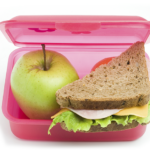
Food poisoning is caused by bacteria, viruses or toxins in the food we eat. Some of these toxins are found naturally in foods, while some have accumulated in the environment.
If you have food poisoning you’ll probably have gastroenteritis symptoms such as abdominal cramps, diarrhoea or vomiting, or flu-like symptoms. Food poisoning can also cause serious long-term problems like kidney failure.
You should seek medical advice if you’re in a high-risk group or have any of the following symptoms:
- frequent vomiting
- bloody vomit or stools
- diarrhoea for more than three days
- extremely painful abdominal cramping
- a temperature higher than 38.6°C
- dehydration from repeated vomiting or diarrhoea
- blurry vision, muscle weakness or tingling in the arms.
Symptoms and causes of food poisoning
You may be sick with food poisoning but not know what food caused it or even that you have it. Different bacteria and viruses can have different effects:
- Salmonella: gastro and flu-like symptoms usually appear between 8 and 72 hours after eating the infected food and last for two to five days.
- Campylobacter: gastro symptoms appear in two to seven days and last about five days.
- Listeria: gastro or flu-like symptoms usually appear after about three days for milder cases and up to 70 days for the severe form, with the illness lasting longer if it is more severe.
- Norovirus or rotavirus: severe gastro or flu-like symptoms usually begin 24 to 48 hours after exposure and last one to three days (norovirus) or up to eight days (rotavirus).
- E. coli: gastro symptoms usually appear in three to four days and last about a week.
Some wild mushrooms, including the death cap, are extremely poisonous. You should not eat wild-harvested mushrooms unless they have been definitely identified as safe. Seek immediate medical treatment If you think you may have eaten poisonous mushrooms.
Large fish, such as shark, swordfish and marlin, may accumulate relatively high levels of mercury. You should limit your consumption of these fish, especially if you are a child, are pregnant or planning pregnancy. Occasionally people die from food poisoning.
High-risk groups for food poisoning
If you’re pregnant, elderly or very young, or your immune system is weak through illness or drugs, you’re at greater risk of food poisoning and possibly serious complications.
If you’re pregnant, Listeria can cause you to miscarry, even if you don’t know you’ve been infected. If you notice symptoms – usually like a mild flu but also diarrhoea, vomiting and nausea – contact your doctor immediately.
Read more about how to avoid listeria on the Pregnancy, Birth and Baby website.
Food poisoning treatment
Most people don’t need medical help for food poisoning.
For a mild case of food poisoning, you may try sucking ice chips, replenishing fluids and electrolytes when you’re ready and easing back into your normal diet and routine. Antibiotics can help with some milder types of food poisoning, especially listeria.
If your child has food poisoning, see your doctor or call healthdirect on 1800 022 222.
Contact your local food enforcement contact and report the illness. It probably wasn’t the last meal you ate, but if you have any food samples keep them for analysis. If you are feeling unwell visit your doctor.



